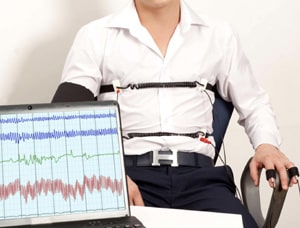IELTS Listening Practice Lie Detection IELTS Listening Practice Lie Detection About this activity This activity is labeled round table by Dr. Hariri, the creator and administrator of LELB Society. This activity is on the premise of Flipped Learning, according to which the students watch a video before the class, carry out research into the selected theme, and prepare themselves for an informed discussion in the class. This activity is on the basis of both synchronous and asynchronous computer-mediated communication (CMC), according to which the students are also encouraged to be active even before the class. In this flipped classroom activity, the students are encouraged to utilize the comment form at the bottom of the post to to exchange their questions, findings, and experiences with each ...
Home » Listening Practice in English » IELTS Listening Practice Lie Detection

IELTS Listening Practice Lie Detection
Updated: by Dr. Mohammad Hossein Hariri Asl
Time to Read: 5 minutes | 381 Views | 17 Comments on IELTS Listening Practice Lie Detection
Share This Post
About the Author
Dr. Mohammad Hossein Hariri Asl is an English and Persian instructor, educator, researcher, inventor, published author, blogger, SEO expert, website developer, entrepreneur, and the creator of LELB Society. He's got a PhD in TEFL (Teaching English as a Foreign Language).
Number of Posts: 4243



10. Could we measure the subconscious communication of a liar and accurately spot deception?
Measuring subconscious communication to spot deception is a complex process and not entirely foolproof. Techniques like observing micro-expressions, which are brief, involuntary facial expressions that reveal genuine emotions, can provide clues. Additionally, changes in voice pitch, speech patterns, and body language can indicate stress or discomfort associated with lying.
9. What noticeable change occurred in the use of pronouns by the American road racing cyclist, Lance Edward Armstrong in 2005 and 2013?
8. Why do liars concoct simple stories in order to deceive others?
Thank you for raising this question about lie detection. We will certainly discuss this question in our next online class.
7. What is the proportion of our conscious mind to our subconscious mind when it comes to cognitive functioning?
6. Why do we lie from a psychological point of view?
5. What is the contrast between the following of two kooks?
Corrections:
… the following two quotes
4. Do liars feel guilty? Example?
Liars can feel guilty, but it depends on various factors such as their personality, the nature of the lie, and the context in which the lie is told. People with strong moral values or empathy may experience guilt because lying conflicts with their ethical standards. On the other hand, habitual liars or those with certain personality disorders might not feel the same level of guilt or remorse. The presence of guilt can often lead to physical and emotional signs of discomfort, which may sometimes be detectable by keen observers.
3. What is the analysis of linguistic and what is the process?
Did you mean Linguistic Text Analysis?
2. What are traditional ways to detect lies? Are they reliable enough to be admissible in court?
Traditional ways to detect lies include observing body language, facial expressions, and verbal cues. Common signs that someone might be lying include avoiding eye contact, fidgeting, inconsistencies in their story, changes in voice pitch, and excessive details. Some people also use techniques like polygraph tests, which measure physiological responses like heart rate and perspiration.
1. How many lies do we hear a day?
On average, research suggests that people are exposed to about 10 to 200 lies per day. The exact number can vary widely depending on the social context, interactions, and personal relationships. These lies can range from harmless “white lies” to more significant falsehoods. It’s important to note that not all lies are malicious; some are told to protect feelings or avoid conflict.